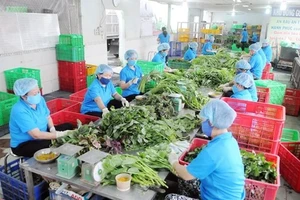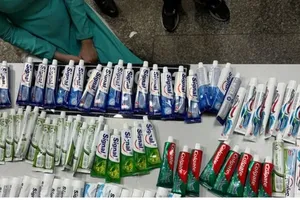 93.78 percent of National Assembly deputies approve a resolution on piloting job training for inmates outside prisons
93.78 percent of National Assembly deputies approve a resolution on piloting job training for inmates outside prisons
According to the Resolution, no more than one-third of the total number of prisons under the Ministry of Public Security are allowed to cooperate with domestic organizations to provide job orientation and training outside of prisons for inmates.
Prisons are responsible for formulating plans, directly managing and supervising labor zones, vocational training outside prisons, detention management, education and re-education, and organization of labor and job guidance activities for prisoners as in prisons. Prisons are responsible for investing in vocational training facilities.
The plan for cooperation between prisons and domestic organizations shall be approved by the criminal judgment execution management agency of the Ministry of Public Security.
The pilot job orientation model must be carried out safely to help prisoners successfully reintegrate into the community and to avoid a relapse into criminal behavior after serving their prison sentences.
Inmates voluntarily participate in labor, vocational guidance, and vocational training activities outside of prison. They will receive a part of their income from jobs as well as exercise their rights and perform their obligations as prescribed in the Law on Execution of Criminal Sentences.
Organizations cooperating with prisons to provide felons’ vocational guidance outside gaols during the pilot period are exempt from corporate income tax.
Inmates who are not eligible for vocational training zones outside the prison, specifically stated in the resolution, include offenders infringing upon national security, undermining peace, against humanity and war crimes, prisoners who have been sentenced two or more times, dangerous recidivism inmates, organizers of particularly serious crimes, prisoners with the remaining time of serving the prison sentence of over 7 years, foreign prisoners, prisoners suffering from infectious diseases in the group A according to the provisions of the Law on Prevention and Control of Infectious Diseases, inmates under 18 years old or 60 years or older, prisoner who has escaped from a detention facility or from a compulsory education institution and inmates who fall into one of the cases specified in Clauses 3 and 4 of the Article 32 of the Law on Execution of Criminal Judgments.
This Resolution takes effect from September 1, 2022, and will be implemented for five years.
























